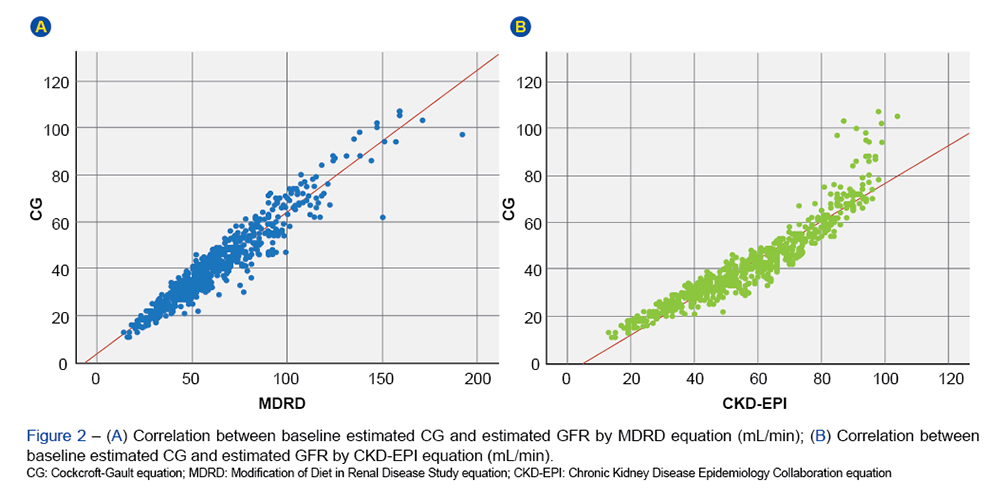SOCIAL MEDIA
Portuguese Medical Association's Scientific Journal

Introduction: Determination of renal function is particularly important when prescribing antibiotics to elderly patients. This study aims to determine the correlation between estimated creatinine clearance and the estimated glomerular filtration rate, for a hospitalized population of very elderly patients, and to audit antibiotic prescribing errors.
Material and Methods: Retrospective cohort study of all patients ≥ 80 years hospitalized with antibiotic. Creatinine clearance was calculated using Cockcroft-Gault equation and estimated glomerular filtration rate by Modification of Diet in Renal Disease Study and Chronic Kidney Disease Epidemiology Collaboration equations. Dosing errors were determined through adjustment of daily define dose to renal function.
Results: The study included 589 patients. The correlation of Cockcroft-Gault with Modification of Diet in Renal Disease and Chronic Kidney Disease Epidemiology Collaboration was r = 0.98 and 0.96 for the minimum serum creatinine, and 0.97 and 0.93 for the maximum serum creatinine. Based on Cockcroft-Gault, there were errors in the daily defined dose in 45% in the minimum serum creatinine, and 52% in the maximum serum creatinine day. There was a discrepancy in the recording of errors of 14% to 16% when Cockcroft-Gault was compared with Modification of Diet in Renal Disease and Chronic Kidney Disease Epidemiology Collaboration.
Discussion: There was a good correlation of Cockcroft-Gault with the estimated glomerular filtration rate by Modification of Diet in Renal Disease or Chronic Kidney Disease Epidemiology Collaboration. Regardless of the equation used to estimate renal function there was a high rate of antibiotic dosing errors documented in this population.
Conclusion: This study supports the maintenance of the Cockcroft-Gault equation for drug dosing in the very elderly population. Further studies are needed to investigate underlying causes of prescribing errors.